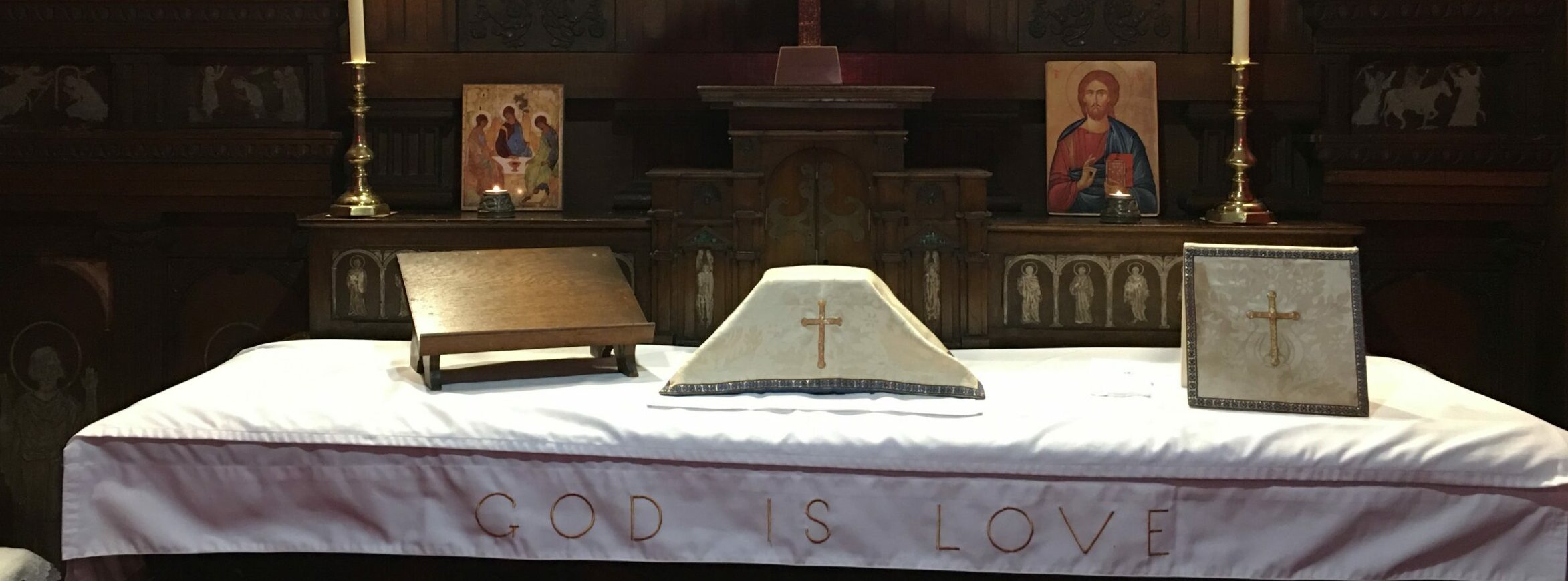 Having been asked to contribute to the St James thought for the day this week, my thoughts on solidarity have sadly been dominated by the distressing news about the murder of Sarah Everard in London and the campaigns to make the streets and other public spaces safe for women to use without fear of attacks or harassment by men. Thousands of people across the country have talked about standing in solidarity with women all over the world and thousands of good, caring men have asked “What can we do to help?” Politicians are so often the first to talk about their “thoughts and prayers” being with those who are bereaved or involved in major incidents, that I often wonder if this is a phrase that just slips off their tongues to make them look good in the media, or whether they actually do go and pray for these people.
Having been asked to contribute to the St James thought for the day this week, my thoughts on solidarity have sadly been dominated by the distressing news about the murder of Sarah Everard in London and the campaigns to make the streets and other public spaces safe for women to use without fear of attacks or harassment by men. Thousands of people across the country have talked about standing in solidarity with women all over the world and thousands of good, caring men have asked “What can we do to help?” Politicians are so often the first to talk about their “thoughts and prayers” being with those who are bereaved or involved in major incidents, that I often wonder if this is a phrase that just slips off their tongues to make them look good in the media, or whether they actually do go and pray for these people.
Prayer is a vital part of our lives as Christians, but for many of the most disadvantaged people in the world, knowing that others are praying for them isn’t always enough. They also need practical solidarity and help towards a better life now, not just promises of hope for another time. In a society in which women, compared to our times, had even less in the way of authority or control over their own lives, Jesus made some very open gestures of solidarity with them. It would have been easy for him to simply rebuke or forgive the Samaritan woman at the well, or the woman caught in adultery, or the woman who used her perfume over his head. Instead, he publicly and controversially asked the woman at the well for a drink, he challenged the crowd calling for the stoning of the adulterous woman to look to their own behaviour first and both defended and praised the woman with the perfume for her actions against those who denounced her.
When I pray for individual people or groups whom I don’t know personally, it’s often along the lines that God will move others to become involved in practical, physical ways to ease their pain, sadness or hardship. However, we can actually make a huge difference to the lives of strangers beyond just praying for them and many at St James have done that for years. Involvement with and support for the local women’s refuge and for the families of the prisoners at Low Moss has been vital in standing beside women in a practical and caring way. The need for donations to the East Dunbartonshire food bank, either with items from our own shopping, or financially online has become more pressing during the past year, as more and more parents on low incomes are struggling to feed their families. Figures have shown that far more women than men have been affected by increasing poverty during the pandemic. Emailing our MPs or MSPs to support campaigns for justice for health or other social inequalities is something we can do without leaving our sofas during lockdown. Befriending isolated or lonely overseas students studying in Glasgow is one way of supporting people across the world and of course, buying fairly traded food or gifts wherever possible gives hope and financial support to poor famers, (often women) trying to feed and educate their children. Remembering and caring for each other as a congregation in difficult times such as this past year is also really important.
I believe that solidarity in prayer is one of the things which makes the difference between us as Christians and people who might have no faith, but still have a social conscience and want to help others. However, as Christians, I believe that we are also called to stand in solidarity with those who need us. Jesus reminds us in Matthew’s gospel that God expects us to get involved in the physical world too, when he says “For I was hungry, and you fed me. I was thirsty, and you gave me a drink. I was a stranger, and you invited me into your home. I was naked, and you gave me clothing. I was sick, and you cared for me. I was in prison, and you visited me…….I tell you the truth, when you did it to one of the least of these my brothers and sisters, you were doing it to me”.
Jane Munro


